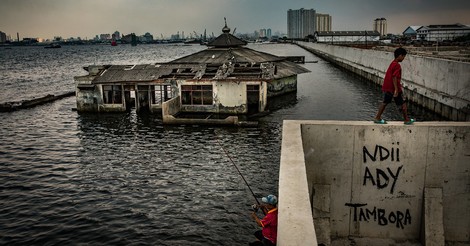Your podcast discovery platform
Curious minds select the most fascinating podcasts from around the world. Discover hand-piqd audio recommendations on your favorite topics.

piqer for: Climate and Environment Global finds Globalization and politics
I'm a freelance journalist, currently based in Madrid. I used to be a News Producer at CNBC in London before, but I thought a little bit more sun might do me good. Now I write for several news organizations, covering a range of topics, from Spanish politics and human rights for Deutsche Welle to climate change for La Marea.
Corruption Is Literally Sinking Jakarta
A couple weeks ago, I wrote about the Spanish drought and how poor water management is behind the current threat to supplies in Spain. Talking to experts here in Madrid, I found out that the thousands, or tens of thousands, of illegal wells, spread all over the country, are one of their main concerns. But not the only concern. So I started researching the topic ... and I came across this amazing and terrifying story from the New York Times.
Jakarta, the capital of Indonesia, is sinking. It's sinking fast, which, added to the sea level rise expected from climate change, is seriously threatening the city. Don't forget that Jakarta is the largest city in Southeast Asia with almost 10 million inhabitants (officially). And the problem is serious.
Jakartans are digging illegal wells, drip by drip draining the underground aquifers on which the city rests — like deflating a giant cushion underneath it. About 40 percent of Jakarta now lies below sea level.
This means that water is invading Jakarta, with regular floods and even rivers running "upstream". Its inhabitants have 10 years, maybe less, to revert the city from sinking. Many parts of the capital are seriously threatened, like the coastal district of Muara Baru, which has sunk 14 feet (around 4 meters) in a few years.
The story is very hard on the local and national governments, blaming corruption and short-term thinking for the tragedy. While I think the analysis is a bit simple, and would probably need to include a better assessment before pointing fingers, I have no reason to doubt it.
The article does a good job of reflecting how regular people (aka the poor and vulnerable) are being affected by problems they aren't responsible for. It also points to the intersection between ecological disasters and religious fanatism.
All in all, a very good example of analytical journalism that inspires and scares, as it should.
